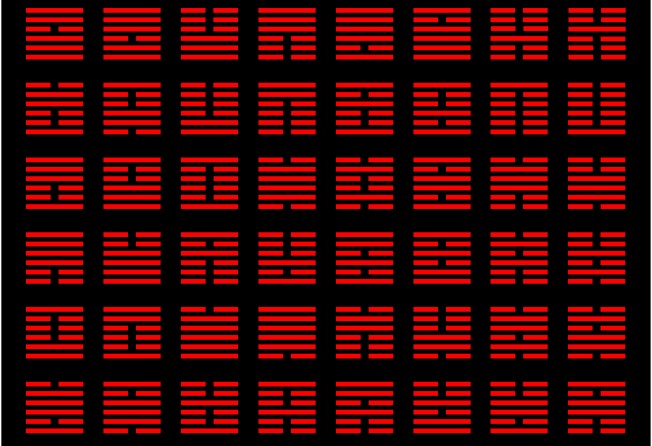translated by John Minford
Viking




The oldest existing book of divination dating back 3,000 years, it is widely consulted in both China and the West for answers not just to life's fundamental problems but also in the worlds of business, medicine, leadership and game theory.
A new translation of the oracle by John Minford, a professor of Chinese at the Australian National University, explores the multi-dimensional aspects of this legendary yet largely elusive work in various ways aimed at personalising it and making it more accessible to the English-speaking world.
Minford's 855-page I Ching - which is also known as the Book of Change - puts under one cover what the author refers to as the "Book of Wisdom", the classic as it has been read and consulted for more than 2,000 years, and the Bronze Age "Oracle", which is the text as it existed in all its shamanistic and magical splendour in the mid-Zhou dynasty around 600BC.
The I Ching first reached the West in the 18th century, writes Minford. "Ever since that time, Western perceptions of the book have varied greatly, from the highly reverential to the baffled, utterly sceptical, or dismissive."
Minford recounts the reaction of a blind French Jesuit named Claude de Visdelou who dictated the following words about the book from the French Indian enclave of Pondicherry in 1728: "It is not strictly speaking a book at all, or anything like it. It is a most obscure enigma, a hundred times more difficult to explain than that of the Sphinx."
Minford's translation is peppered with his commentaries, some of which include quotes in Latin from an early Jesuit Latin version of the book.
"I sincerely believe that these occasional Latin snatches," writes Minford, "can help us relate to this deeply ancient and foreign text [and] create a timeless mood of contemplation" aimed partly at evoking indirect connections between certain Chinese and Western traditions of philosophy and spirituality.
A striking example of Minford's literary fusion comes in the first line of the text's Hexagram I: "The Dragon lies hidden, Draco est absconditus. Do not act, Nole uti."
Minford's commentaries are, however, almost exclusively based on Chinese sources. "There are no fantasies of my own or quotes from Shakespeare," he said in an email exchange from Australia. "I want this to be a Chinese I Ching, not a text in the Jungian canon."
Minford refers to the unanimity among leading China scholars that, when used properly, the I Ching "has the ability to open doors, to reconnect the individual with the large Universe and its rhythms". There is, ultimately, "no book out there, no reader in here," he writes, echoing the well-known idea that the I Ching is a book with neither beginning nor end.
It took Minford 12 years to translate the book. "I was already fascinated by the I Ching before 1966, when I began studying Chinese at Oxford," he said, adding the classic was a "cult book of the hippy era, which is when I grew up".
Minford, who also authored a translation of Sun Tzu's The Art of War, explored "whole fields of knowledge about ancient China, its culture and thought", for his latest work, he says.
"Most of all, I have found myself taken on an extraordinary journey of self-reflection, guided by what is perhaps the oldest embodiment of the Chinese perennial philosophy," he says.
"It has changed my life, and I wanted to convey something of this in my translation."